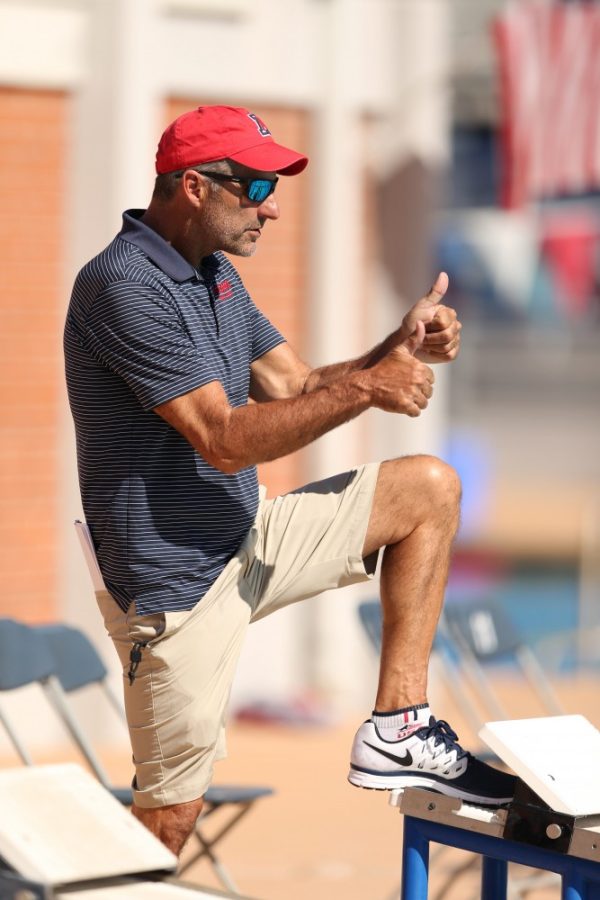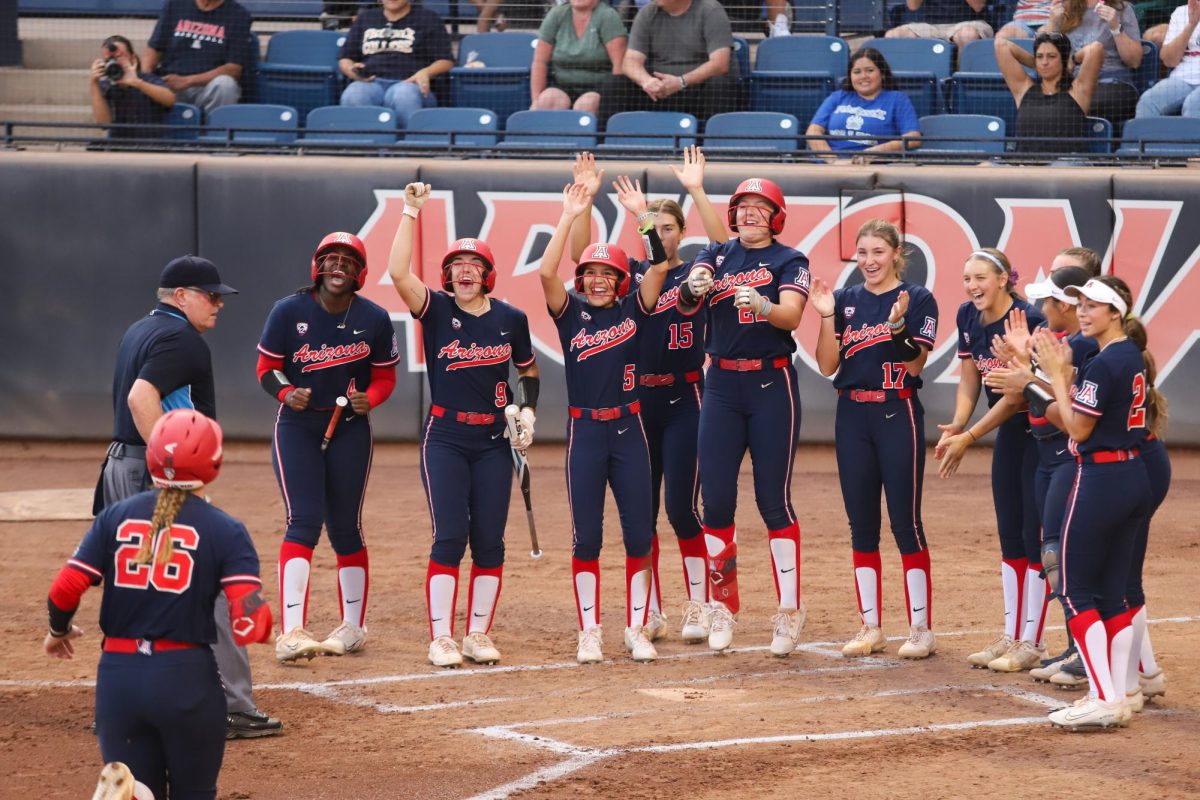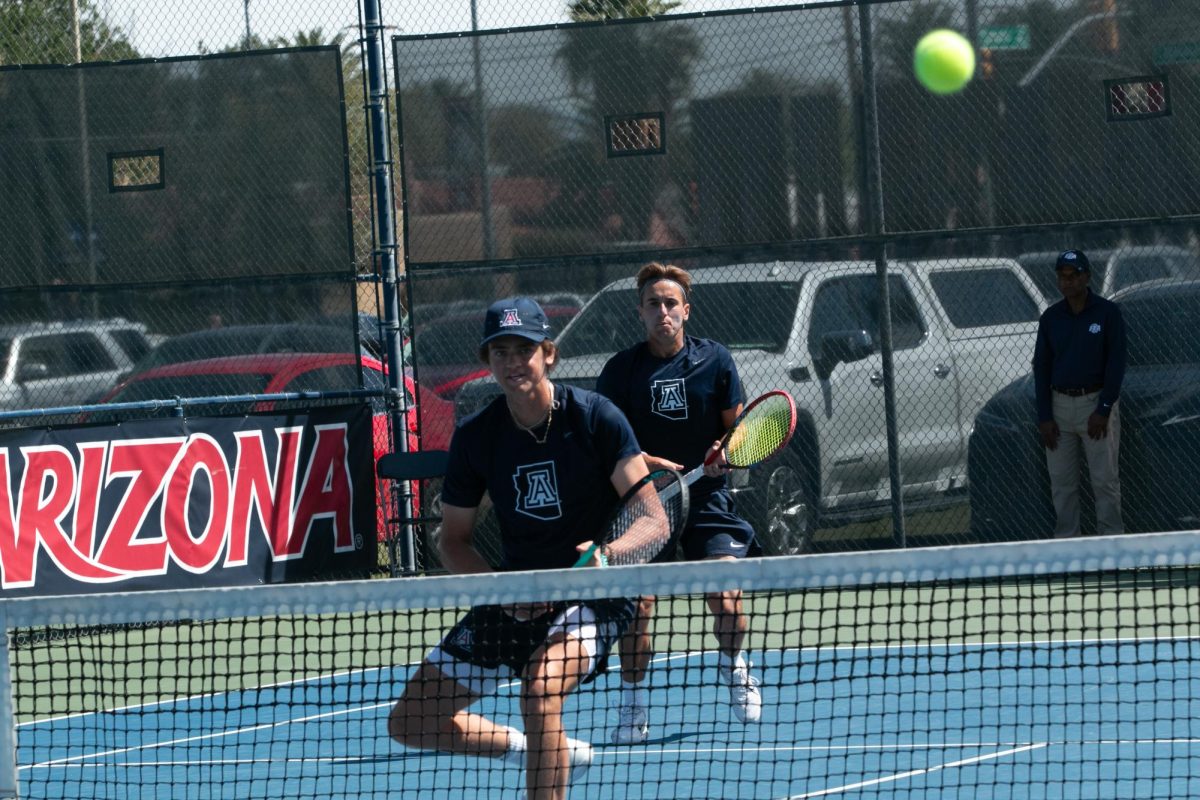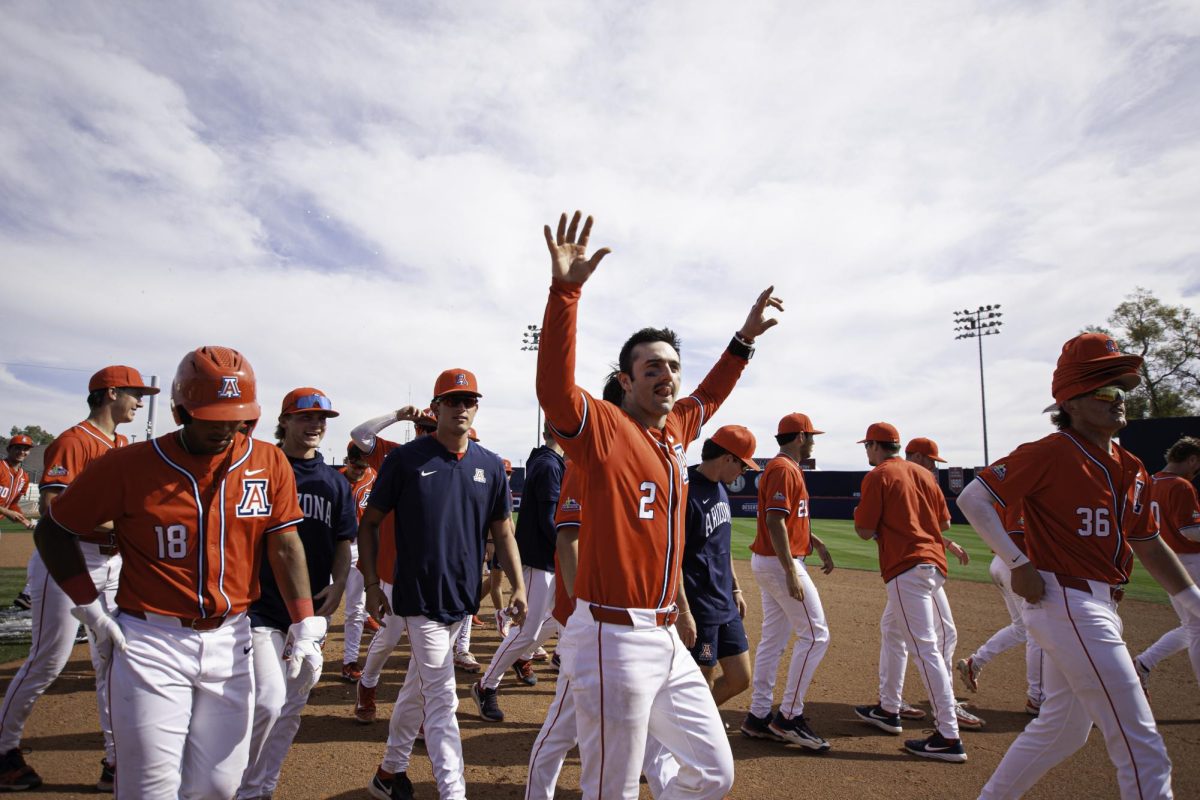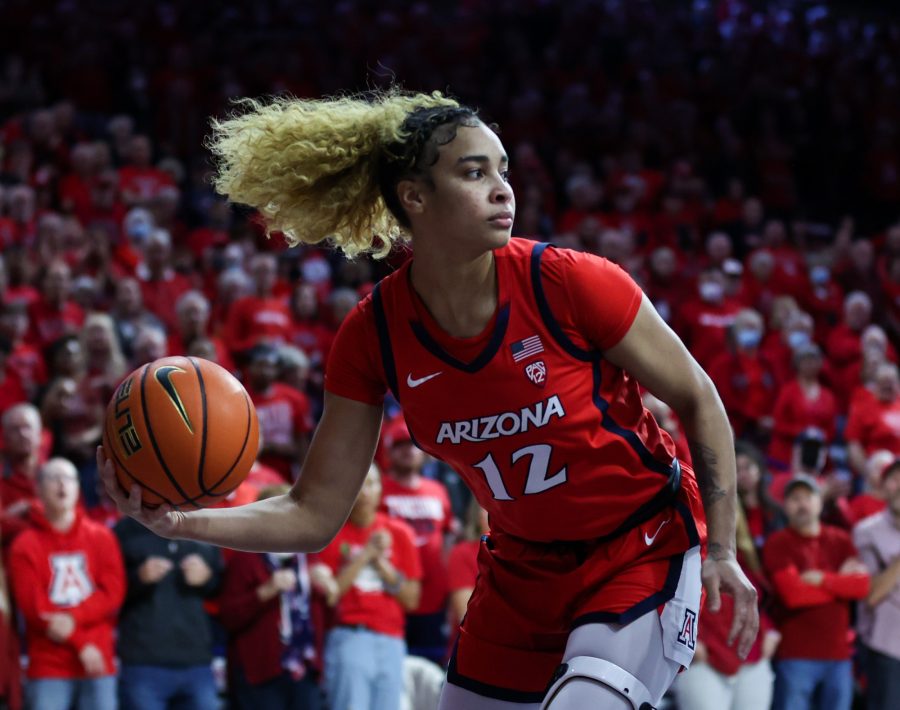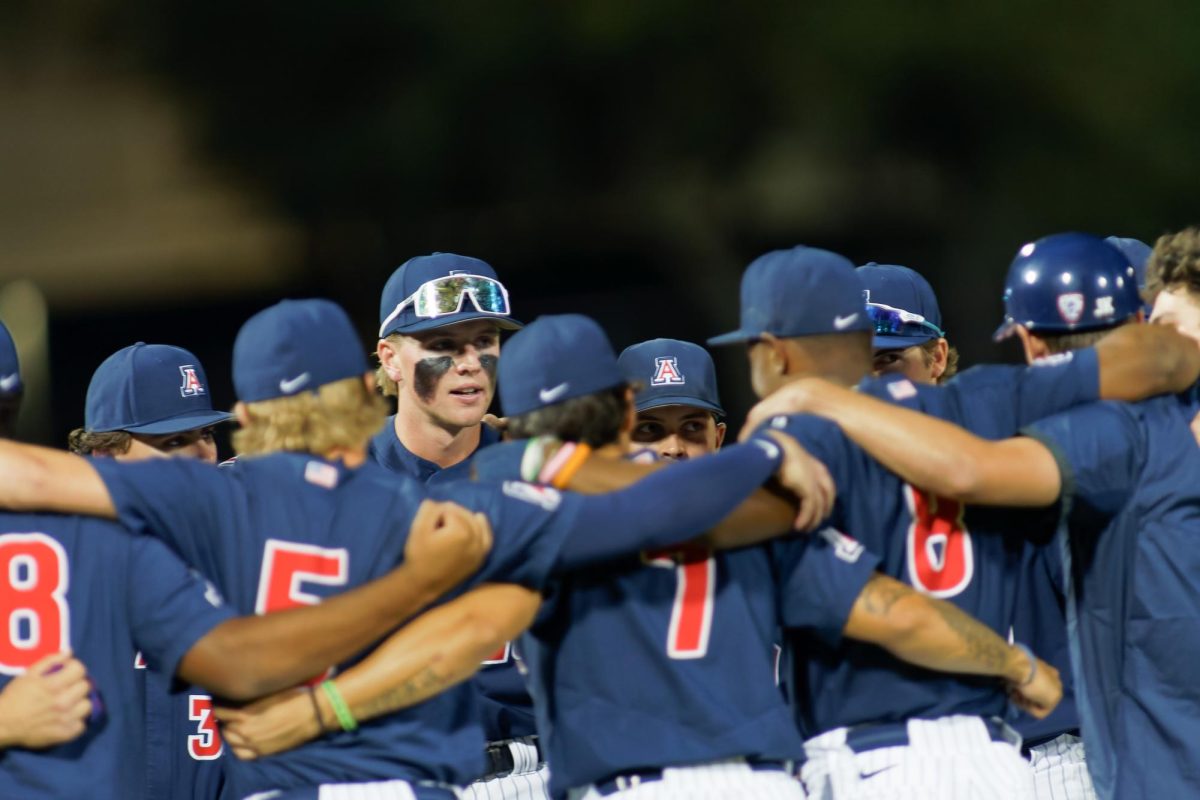At the age of 16, high school senior Rick “Rocket” DeMont was on top of the world. That is, until his world came to a crashing halt.
“It went from the highest of highs to the lowest of lows in four days,” DeMont said.
DeMont would be disqualified by the International Olympic Committee in the 1972 Munich Olympics after winning the 400 freestyle gold medal. According to the New York Times, DeMont had taken an asthma medication known as Malax, which contains ephedrine.
“I have been asthmatic since I was 4 years old,” DeMont said. “I was working with doctors about medication and put everything that I was taking [on the medications list]. The asthma stuff tested me positive. No one told me not to take it. I’m kind of the drug testing poster boy, I guess.”
The matter would be broadcasted all over the globe and DeMont was forced to return his gold medal. The story was later pursued by ESPN, the Times, Dan Patrick, Sports Illustrated and Howard Cosell.
“It’s so long ago, it doesn’t make any difference to me,” DeMont said. “It was a crash course in world politics. I was an idealistic 16-year-old. What I was involved in was just ugly politics. It was really hard for me to understand the adult world. I was thrashed by it. It was too much for me, being a 16-year-old, to handle the amount of attention. I was in way over my head.”
DeMont was one of just four high-schoolers competing at the Olympics that year.
All that is behind him now as he leads the Arizona men and women’s swimming and diving program, entering his 30th year with the program.
After 29 years of trying to clear his name, DeMont was cleared by the US Olympic Committee and became the head coach of the Arizona program in February of 2014.
DeMont replaced former Wildcat head coach Eric Hansen, who resigned from the position due to “undisclosed reasons.”
If you happen to run into DeMont now, he’s as happy-go-lucky as can be.
“I look forward to coming into work because he’s just got energy,” Arizona assistant coach Steve Brown said. “He’s 60 going on 30.”
That same energy has transfixed the collegiate sport of swimming for 30 years, all of which have been with the Arizona Wildcats.
“I realized I had a tremendous effect on these little people and they have a tremendous effect on me,” DeMont said. “I was good at it, and I could relate to them. Maybe it’s because I’ve been to hell and back.”
It’s a big way DeMont has found to connect with his student-athletes and fellow coaching staff.
“Humor keeps it light,” DeMont said. “You are asking these people to go to the end of their rope and live there and build a house there, right on the end of their rope. Humor lightens the mood and takes stress away. We are in the middle of incredible stress all the time, and you have to be able to laugh at it.”
DeMont first joined the Wildcat program after transferring from the University of Washington as a student. Bob Davies, who coached DeMont in high school, was the main reason for DeMont’s transfer after the Huskies program was terminated.
Coaches in the program notice first-hand DeMont’s ability to connect with his team.
“His way to connect with athletes on a very personal level is very unique and beneficial,” assistant coach Adam Byars said.
Few coaches have the opportunity to work at their alma mater. Far fewer get the chance to coach for a school for more than 30 years.
“I’ve never represented another school in my coaching career,” DeMont said. “I don’t think there is another coach maybe anywhere who can say that.”
When you walk into DeMont’s office in McKale Center, a painting hangs on the wall to the left of his desk. DeMont picked up art as a young boy and has continued to evolve his mastery of the arts over the years.
“He looks at each individual athlete as a piece of art, so he has to sculpt it and mold it the way he thinks it’s going to swim through the water the fastest,” Brown said. “His attention for detail and nuisances is unparalleled. He’s a kid at heart.”
Growing up, DeMont struggled with hyperactivity, so his family encouraged him to pursue art.
“My grandmother was an artist, so I grew up thinking art was normal,” DeMont said. “She was a big influence in my life. I had the stuff to do it with. I had all the fixings to do art as a young kid. It calmed down my hyperactivity because I was an unbelievable handful.”
Standing at 5-foot-11, few would guess that DeMont was one of the most prolific swimming athletes of his generation.
“He’s a legend in the sport,” Brown said. “He’s an Olympic gold medalist at 16, a world record holder, he’s coached so many Olympians, world record holders [and] NCAA Champions.”
Speaking of legends, DeMont and his Wildcats will face in-state rival ASU this season, but it will feel much different than before. Twenty-eight-time U.S. Olympian Michael Phelps will serve as a volunteer assistant with the Sun Devils.
“I want to know how much Michael is coaching,” DeMont said. “I’m trying to figure out why a guy that is a 100-millionaire would want to coach. I’m skeptical if he’s actually coaching. But his coach is coaching and they are really good. They are very popular right now. We got to go against him, and we do that by paying attention to our day-to-day.”
At the end of the day, the sport has been DeMont’s life, and he has appreciated giving back to the many that taught him.
“I’ve been around a long time,” DeMont said. “There is starting to be very few people who have been around at [the] very high level of competition [that] I have. You bring your live experiences to the deck and try to influence young people in a positive way.”
From when DeMont was a swimmer, the sport has certainly changed in terms of training and the attitude of swimmers in general.
“Training has become a lot more specific,” DeMont said. “The idea of beating a team to death and taking the survivors, those kind of days are over. The mindset of the 1970s was if it hurts, that’s good. We are a lot smarter physiologically and psychologically [about] what people can take.”
Whether it be his coaching style or how he pioneered negative split swimming, a technique still used today, DeMont lives and breathes swimming. More so, he has the opportunity to make a difference in the lives of young people every single day.
“I live vicariously through them,” DeMont said. “Their medals are mine.”
Follow Matt Wall on Twitter.



